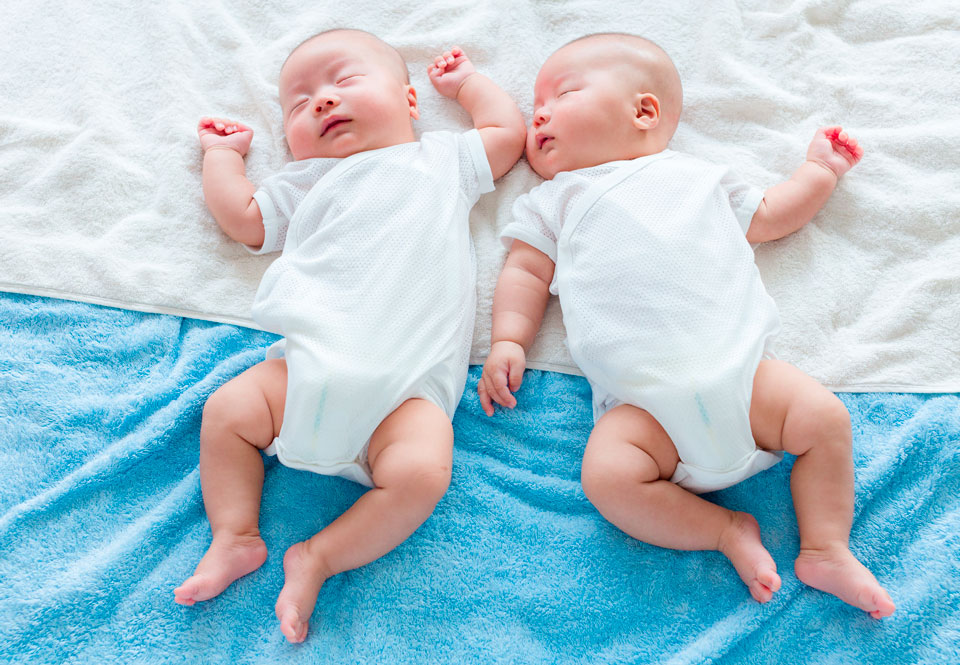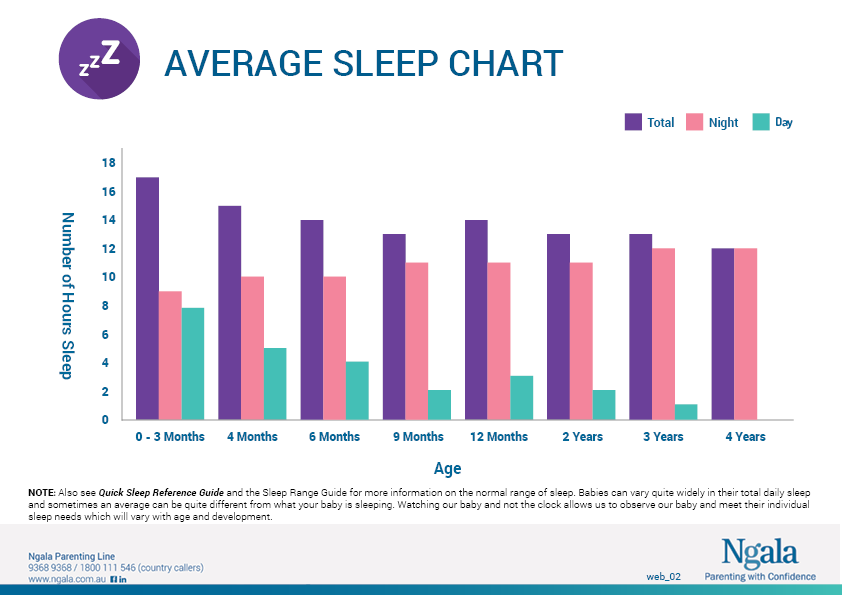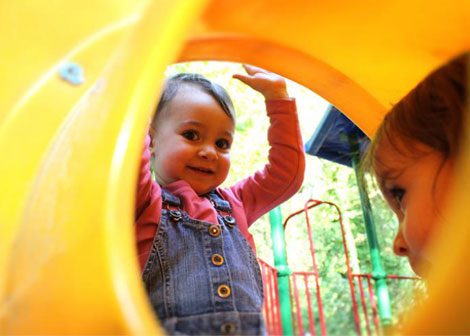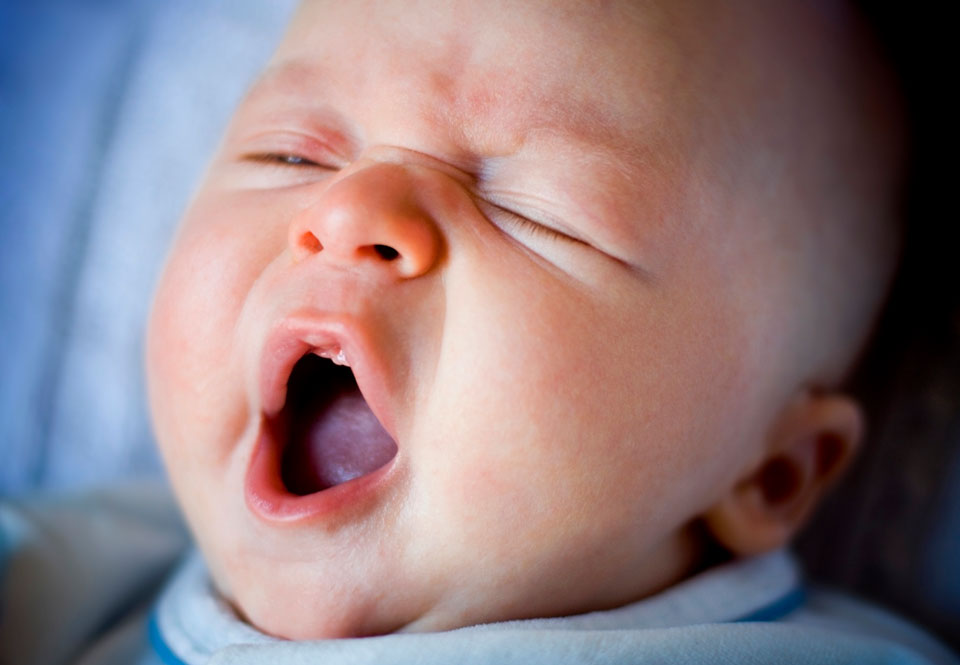Sleep is necessary for all of us. It helps our brains and bodies to develop, restore and repair. That’s why growing babies need so much sleep.
Sleep range
11.8 to 20.5 hours out of 24, although most babies sleep about 15 to 18 hours.
Sleep patterns
Most babies sleep for a one to three hour block.
Awake patterns
Usually tired after one to one and a half hours of awake time.
Sleep cycles
When we sleep we go through a series of sleep-wake cycles. We become drowsy, fall asleep, move into a deep sleep and then back into light sleep again. This is called a sleep cycle.
Your baby will start with short sleep cycles of 15 to 20 minutes, but over time these will get longer.
Within these sleep cycles there are two types of sleep:
- REM (rapid eye movement) is light sleep, usually after midnight.
- Non-REM is deep sleep, usually before midnight.
REM sleep is very important for your baby’s brain development and learning.
Your baby will spend 50% to 75% of their sleep in REM. As your baby sleeps their brain is sorting out what has happened during the day. It orders memories and stores them in the right parts of the brain so the information can be remembered. Your baby can be easily woken during REM sleep.
When your baby is in deep non-REM sleep, they will lie quite still, breathe deeply and be difficult to wake. If woken they may be upset or confused.
The key to longer sleeps is to help your baby link their sleep cycles.
By helping your baby to self-soothe and settle they will learn to link their sleep cycles for longer periods of time. When we repeat routines of soothing and resettling, babies begin to learn that these are signs to sleep.
A baby’s daily routine of feeding and sleep will mature over time. Babies have different abilities to settle themselves so you will need to get to know what help your baby might need to link their sleep cycles.
Melatonin is the hormone that makes us tired and helps us to differentiate night and day, as the sun goes down we begin to produce melatonin. The release of melatonin is regulated by our circadian rhythm, the cycle that our body becomes accustomed to for our day and night routine. So maintaining the quiet, darkened space for your baby to sleep helps them maintain this rhythm.
Newborn sleep routines
As your baby grows, sleep patterns will change. From stage to stage, you will adapt and find ways to help your baby settle. There is no quick fix, but in time your baby will develop the ability to self-soothe.
Up to six months of age, most babies wake two to three times a night for a feed. Breastfed babies may wake more often.
Sleeping patterns often change at the same time as major milestones. Babies are growing and learning fast in their first year. This influences their sleep and waking. When your baby starts to roll over, crawl or has a growth spurt you may notice a change in their sleep routine.
A return to night waking after periods of sleeping through the night is normal. This is usually linked with a leap in brain development and processing new things they have learnt. Teething and illness or a change in the sleeping environment will also affect their sleep.
Average Sleep Patterns
The average sleep patterns from newborn to four years of age is represented in our sleep chart: Average Sleep by Age.
Want to know more?
Raising Children Network – About newborn sleep
Raising Children Network – About sleep
Frequently asked questions
How much will my baby sleep?
The amount of sleep that babies need varies from child to child. The amount will decrease over the first three months and then stabilise during their first 12 months.
My baby doesn’t sleep at night!
Don’t worry, your baby will quickly learn to respond to the patterns of light and dark, night and day rhythms. Some babies need more help than others.
A 6- to 12 month old baby may wake repeatedly at night. This is due to a number of factors and is quite normal. Mainly they are overcoming their anxiety of being separated from you, and are learning to become more independent.
When will my baby have a sleep routine?
It may take up to 14 weeks – as their brain develops – for babies to start a pattern of responding to changes in night and day rhythms. You will help them to develop a routine with soothing, settling and sleep cues.
Your baby’s routine may be affected by factors in their environment. The Raising Children Network has further information on light and noise at sleeptime.
The act of going to sleep is one of your baby’s first experiences of being apart from you. Considering this, it’s easier to understand if they are wakeful. This is a normal developmental stage. Your consistent responsiveness will make your child feel secure and trusting – you are not ‘spoiling’ your child.







